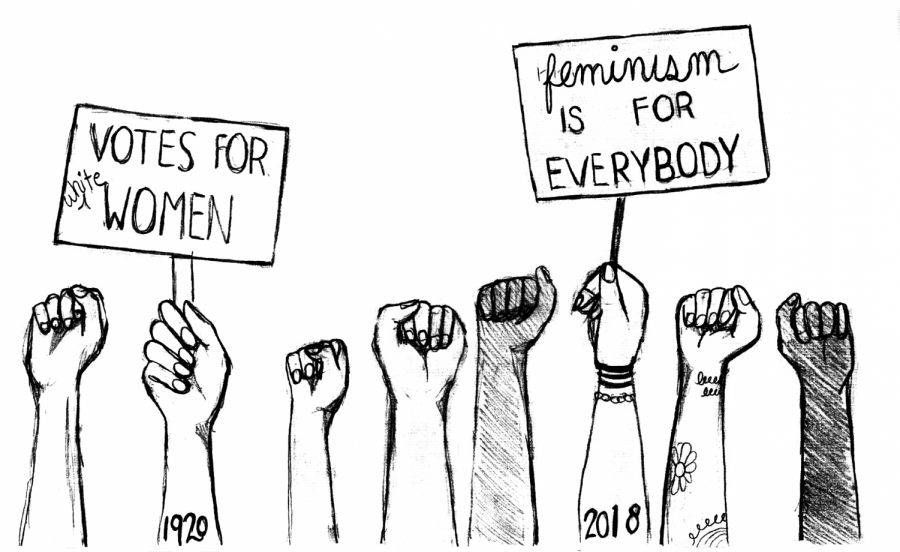Feminism has to transcend generational differences
January 26, 2018
While watching the Golden Globe Awards with my parents, I noticed something interesting.
As I cheered on Seth Meyers and his jokes skewering Harvey Weinstein, Woody Allen and other male celebrities accused of sexual assault, my parents seemed bored about 10 minutes in.
They began questioning the legitimacy of certain claims.
“Al Franken? He was such a good senator, too bad.”
“Okay, but does grabbing her butt really count as assault?”
Second-wave feminists (1960s-70s) and third-wave feminists (1990s-10s) have significantly different views on sexual misconduct.
Third-wavers are usually quick to call out any form of sexual harassment, assault or abuse, whether large or small.
Second-wavers, on the other hand, tend to dismiss smaller offenses, such as unwanted touching or sexual comments.
One clear example of their differences is their reaction to a Jan. 14 article on Babe.net about a young woman’s negative sexual encounter with comedian Aziz Ansari.
Although both waves admitted experiencing similar situations in which their partners were unaware of their discomfort, second-wavers who placed the blame on the young woman — called Grace — for not being more direct with Ansari about her discomfort.
One reason for their reactions is the differences between their battles and the ones third-wavers fight today.
Their efforts gave us Title IX, Roe v. Wade and the Civil Rights Act, which are undeniably valuable.
Some might say that while they fought for fundamental rights we take for granted, third-wavers make mountains out of molehills. However, second-wavers recieved the same message when they first started their fight against inequality.
While many obstacles of basic gender inequality have been settled, by no means are the struggles women face today less important.
Not everything that feminists protest today had been seen as sexual harassment or assault in the past, making today’s investigations of the gray areas long overdue.
Neither generation is wrong in its beliefs, but each has something to learn from the other.
Third-wavers can learn that the rights we have today were not always given freely, and that it is necessary to see the bigger picture to make bigger changes.
Second-wavers can learn that even microaggressions can carry significant weight, and ultimately contribute to much larger problems if not stopped.
Both can educate themselves on the circumstances of the other generation. Both generations can cooperate, rather than call out, to build a more collaborative and inclusive form of feminism.









